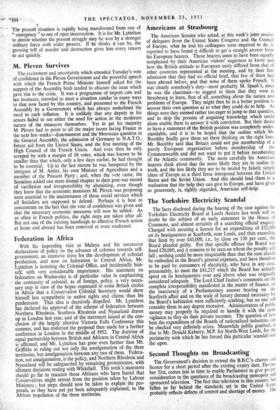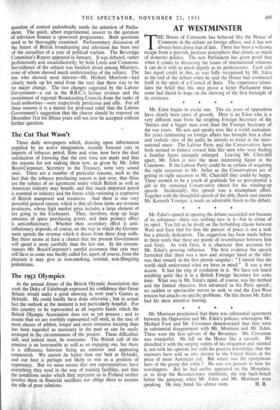Second Thoughts on Broadcasting
The Government's decision to extend the B.B.C.'s charter and licence for a short period after the existing expiry date, Decem- ber 31st, comes just in time to enable Parliament to give proper consideration to the questions of the broadcasting monopoly and sponsored television. The fact that television in this country has fallen so far behind the standards set in the United States probably reflects defects of control and shortage of money. The question of control undoubtedly needs the attention of Parlia- ment. The quick, albeit experimental, answer to the question of television finance is sponsored programmes. Both questions need to be thoroughly examined. Parliamentary discussion of the future of British broadcasting and television has been one of the casualties of a year of political warfare. The Beveridge Committee's Report appeared in January. It was debated, rather perfunctorily and unsatisfactorily, by both Lords and Commons. Surveillance of the subject was bandied about among Ministers, none of whom showed much understanding of the subject. The one who showed most interest—Mr. Herbert Morrison—had clearly made up his mind from the start that there was to be no major change. The two changes suggested by the Labour Government—a cut in the B.B.C.'s licence revenue and the recruitment of regional Broadcasting Councils from the ranks of local authorities—were respectively pernicious and silly. For all these reasons it is a matter for profound relief that the Labour Government's suggestion that the charter should be renewed on December 31st for fifteen years will not now be accepted without further question.



































 Previous page
Previous page